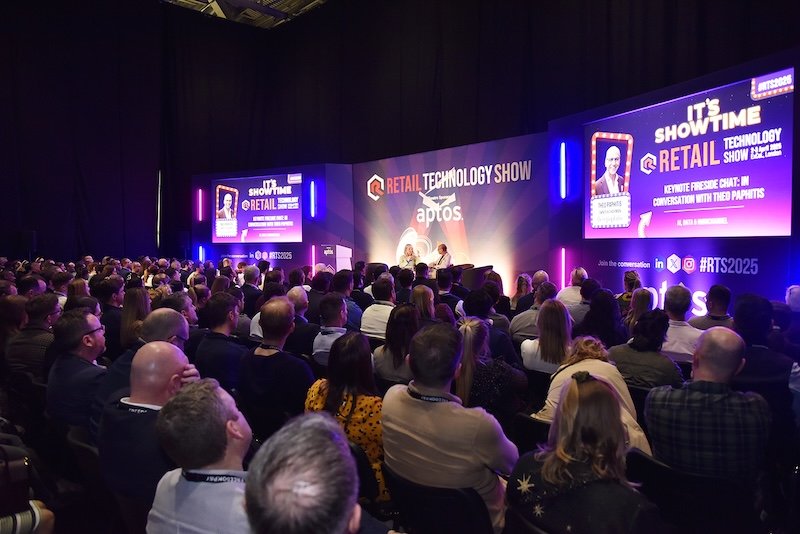The retail technology year in review: February 2021
February saw several mega funding rounds, robots on the rise, calls for regulation of the buy now, pay later space, the heavy cost of non-essential retail closures during the Covid pandemic, and Andy Jassy being announced as the next CEO at Amazon.
Good month for…
Shippo, a startup that powers shipping services for e-commerce companies, announced a $45 million investment led by D1 Capital. The new capital valued the venture at $500 million.
CNBC’s Jim Cramer argued that GameStop should convert its stores into crypto info centres.
South Korean e-commerce big hitter, Coupang, was gearing up for what was set to be the largest initial public offering by a foreign company in the US since Alibaba Group’s debut in 2014.
Coupang was reportedly eyeing a market valuation of more than $50 billion following its listing on the New York Stock Exchange.
Locus Robotics, which specialises in autonomous mobile robots for fulfilment warehouses, landed $150 million in Series E funding, bringing its valuation to $1 billion.
Online furniture retailer Made.com was looking into a stock market flotation that would value it at more than £500 million and possibly as much as £1 billion.
US-based autonomous checkout solution provider, Standard Cognition, announced a $150 million Series C round led by SoftBank.
This put the venture’s valuation at $1 billion+, making it tech/retail's newest unicorn.
Buy now, pay later venture Sezzle signed a $250 million funding facility with Goldman Sachs Bank USA and Bastion Funding IV as it looked to expand in the US and Canada.
Private equity firm IW Capital completed a £800,000 investment in the latest round of a £2.9 million raise for scan, pay and go venture, Ubamarket.
Online marketplace notonthehighstreet was bought by private equity firm, Great Hill Partners, for an undisclosed sum.
The deal came after the venture – which was founded in 2006 – added nearly a million new customers and saw its community of hand-picked small business sellers rise four-fold in 2020 as the coronavirus pandemic drove an e-commerce boom.
Ocado said it would stump up £700 million for new projects for its technology clients in 2021 as group sales in the year to 29th November reached £2.3 billion.
Former Just Eat CEO David Buttress joined the board of Egypt-based food discovery and ordering platform, elmenus, and made an undisclosed investment in the company.
Customer data platform Lexer secured $25.5 million in a Series B round led by Blackbird Ventures and King River Capital.
Artificial Intelligence startup Peak announced a $21 million Series B funding round led by VC firm Oxx, with participation from existing investors MMC Ventures and Praetura Ventures, and newbie Arete.
E-commerce delivery startup Pandion emerged from stealth mode and raised $4.9 million in seed funding.
Founder and CEO Scott Ruffin was the Founder and Head of Amazon Air and most recently was VP and Head of Walmart’s E-commerce Transportation division.
Bad month for…
Primark estimated that non-essential retail closures across its global store estate cost it £1.1 billion in lost sales in the first half of its financial year.
It did, however, expect the post-coronavirus lockdown period to be “highly cash generative”.
Also this month…
Asda said it had increased its online delivery capacity by 90% since March 2020 to 850,000 weekly slots and was on course to fulfil one million orders per week by the end of the year.
Buy now, pay later big hitters Klarna and Laybuy responded to the publication of The Woolard Review into the unsecured credit market.
As part of the review, interest free buy now, pay later credit agreements will be regulated by the FCA, after rapidly increasing in popularity due in no small part to the coronavirus pandemic driving shoppers online.
Asos, boohoo, Gymshark, The Hut Group, Ocado Group and AO World launched a new trade body called the UK Digital Business Association (UKDBA).
This came amid heated debate around tax and business rates and the acceleration of e-commerce across all demographics during the coronavirus outbreak.
Waitrose rolled out a new mobile application to help it assess and understand the emotional wellbeing of its farm animals.
This was developed by animal behavioural scientists at Scotland’s Rural College (SRUC) and licensed by the retailer for trial and development for two years.
US grocery delivery service Instacart was reportedly looking into the use of robotic warehouses to fulfil its orders.
Iceland Foods joined The Climate Pledge, a public commitment to “go green” launched by Amazon and Jeff Bezos in 2019.
Former Bank of England Governor Mark Carney joined the board of online payments provider Stripe.
The announcement closely followed reports that the US firm was planning a primary funding round, valuing it at more than $100 billion.
China was set to become the first country in which e-commerce surpasses 50% of retail sales, according to eMarketer.
Sainsbury’s introduced a system which allows customers to recycle Polypropylene (PP) film found in several household plastic products.
After deploying its first Simbe Robotics’ Tally robot in 2019, Carrefour UAE added 11 more across select stores to support with stock management and control.
Frictionless shopping startup Zippin’s Japan partner, Fujitsu, worked with Koyo Group to implement what was pitched as the world’s first checkout-free store within a hotel.
Situated in the Yokohama Techno Tower Hotel, this is also the first store in Japan open to the general public that uses biometric authentication technology to verify customers’ identities.
Amazon Founder and CEO, Jeff Bezos, said he would transition to the role of Executive Chair in the e-commerce giant’s Q3 this year.
Amazon Web Services Chief Andy Jassy would become CEO at that time.
Bezos went out on a high note, with Amazon reporting record revenues for its core Christmas quarter, topping $100 billion for the first time.
Shopify expanded its online checkout service Shop Pay to merchants selling on Facebook and Instagram.
This was the first time the solution moved beyond the e-commerce platform provider’s merchant stores.










